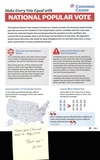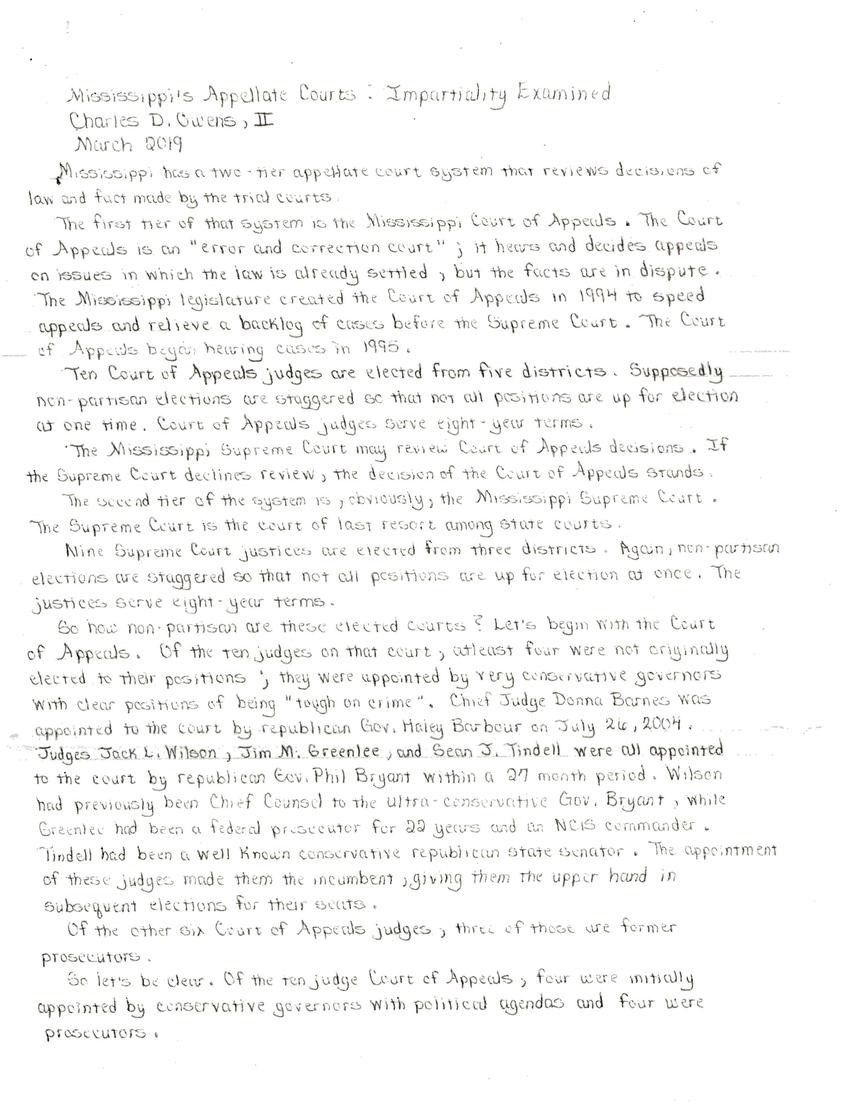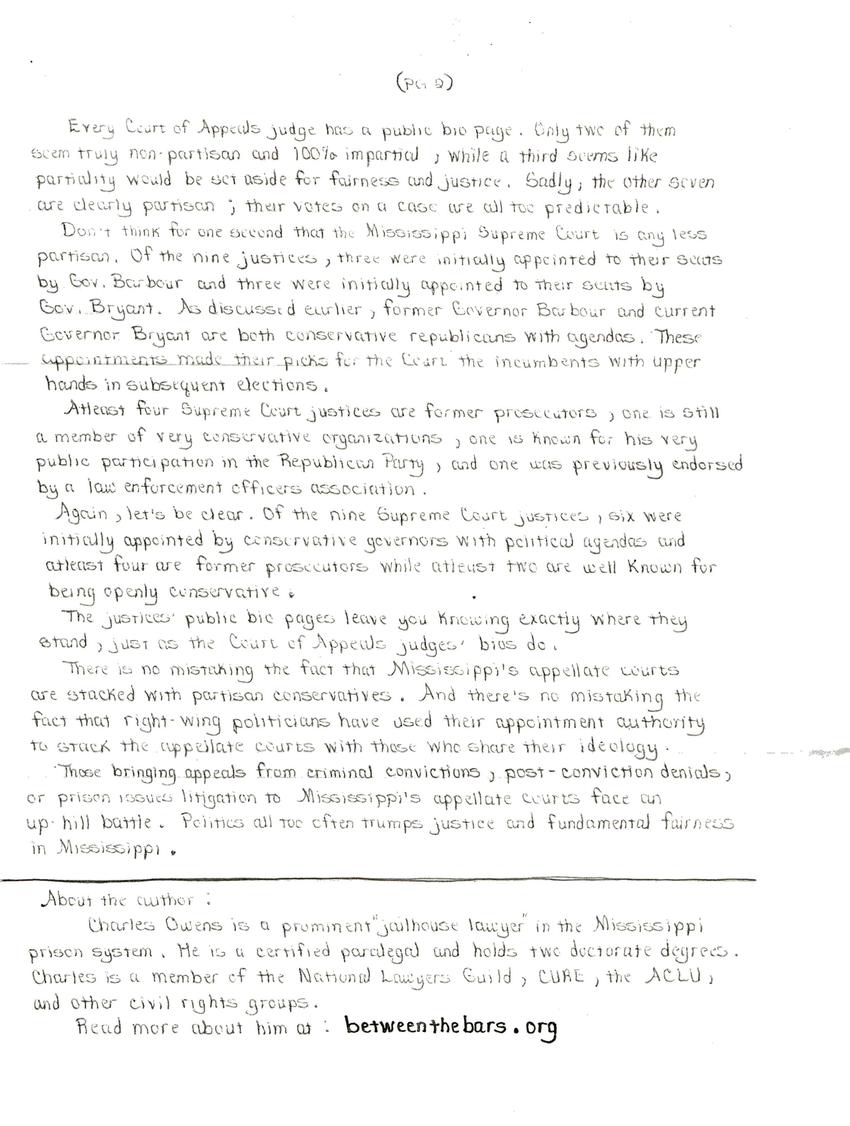
Transcription
Mississippi's Appellate Courts: Impartiality Examined
Charles D. Owens, II
March 2019
Mississippi has a two-tier appellate court system that reviews decisions of law and fact made by the third courts.
The first tier of that system is the Mississippi Court of Appeals. The Court of Appeals is an "error and correction court;" it hears and decides appeals on issues in which the law is already settled, but the facts are in dispute. The Mississippi legislature created the Court of Appeals in 1994 to speed appeals and relieve a backlog of cases before the Supreme Court. The Court of Appeals began hearing cases in 1995.
Ten Court of Appeals judges are elected from five districts. Supposedly non-partisan elections are staggered so that not all positions are up for election at one time. Court of Appeals judges serve eight-year terms.
The Mississippi Supreme Court may review Court of Appeals decisions. If the Supreme Court declines review, the decision of the Court of Appeals stands.
The second tier of the system is, obviously, the Mississippi Supreme Court. The Supreme Court is the court of last resort among state courts.
Nine Supreme Court justices are elected from three districts. Again, non-partisan elections are staggered so that not all positions are up for election at once. The justices serve eight-year terms.
So how non-partisan are these elected courts? Let's begin with the Court of Appeals. Of the ten judges on that court, at least four were not originally elected to their positions; they were appointed by very conservative governors with clear positions of being "tough on crime." Chief Judge Donna Barnes was appointed to the court by Republican Gov. Haley Barbour on July 26, 2004. Judges Jack L. Wilson, Jim M. Greenlee, and Sean J. Tindell were all appointed to the court by Republican Gov. Phil Bryant within a 27 month period. Wilson Greenlee had been a federal prosecutor for 22 years and as NCIS commander. Tindell had been a well known conservative Republican state senator. The appointment of these judges made them the incumbent, giving them the upper hand in subsequent elections for their seats.
Of the other six Court of Appeals judges, three of those were former prosecutors.
So let's be clear. Of the ten judges in the Court of Appeals, four were initially appointed by conservative governors with political agendas and four were prosecutors.
Every Court of Appeals judge has a public bio page. Only two of them seem truly non-partisan and 100% impartial, while a third seem like partiality would be set aside for fairness and justice. Sadly, the other seven are clearly partisan; their votes on a case are all too predictable.
Don't think for one second that the Mississippi Supreme Court is any less partisan. Of the nine justices, three were initially appointed to their seats by Gov. Barbour, and three were initially appointed to their seats by Gov. Bryant. As discussed earlier, former Governor Barbour and current Governor Bryant are both conservative Republicans with agendas. These appointments made their picks for the court the incumbents with upper hands in subsequent elections.
At least four Supreme Court justices are former prosecutors, one is still a member of very conservative organizations, one is known for his very public participation in the Republican Party, and one was previously endorsed by a law enforcement officers' association.
Again, let's be clear: of the nine Supreme Court justices, six were initially appointed by conservative governors with political agendas and at least four are former prosecutors. At least two are well known for being openly conservative.
The justices' public bio pages leave you knowing exactly where they stand, just as the Court of Appeals judges' bios do.
There is no mistaking the fact that Mississippi's appellate courts are stacked with partisan conservatives. And there's no mistaking the fact that right-wing politicians have used their appointment authority to stuck the appellate courts with those who share their ideology.
Those bringing appeals from criminal convictions, post-conviction denials, or prison issue litigation to Mississippi's appellate courts face an uphill battle. Politics all too often trumps justice and fundamental fairness in Mississippi.
About the author:
Charles Owens is a prominent "jailhouse lawyer" in the Mississippi prison system. He is a certified paralegal and holds two doctorate degrees. Charles is a member of the National Lawyers Guild, CURE, the ACLU, and other civil rights groups.
Read more about him at https://betweenthebars.org/blogs/555/charles-douglas-owens-ii
Other posts by this author
|
2023 may 31

|
2023 mar 20

|
2022 aug 23

|
2022 aug 23

|
2022 aug 23

|
2022 aug 23

|
More... |



Replies (1)